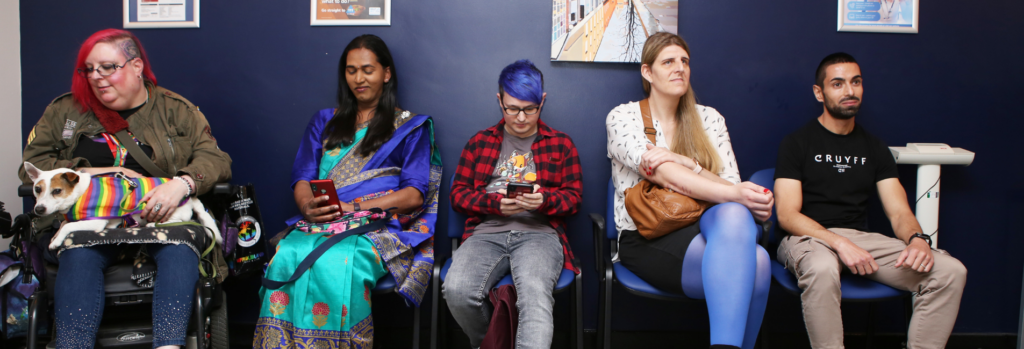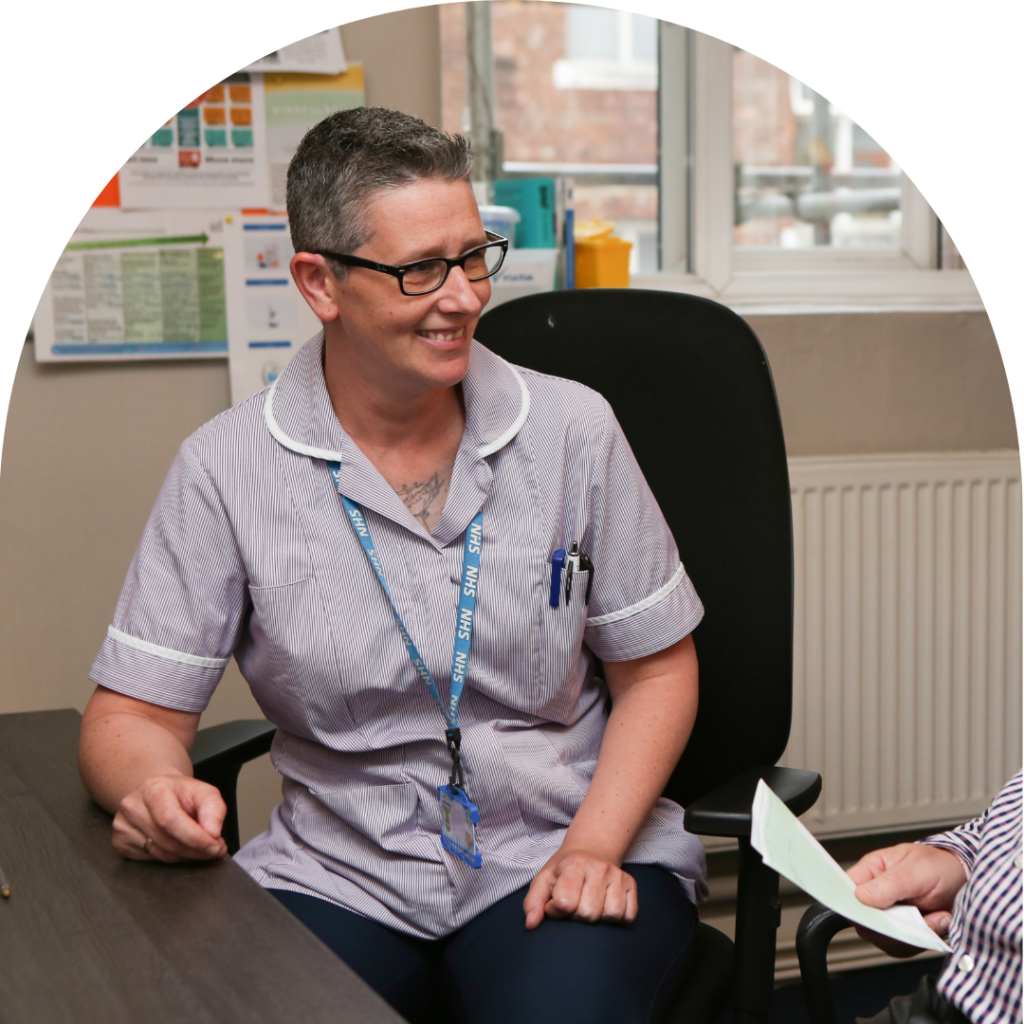
Utilising strength-based approaches to develop LGBTQ+ inclusion across a number of services, sectors, and organisations.
This model harnesses the lived experience of individuals, best practice guidelines, and community assets to initiate meaningful and sustainable change.
As part of this approach, we provide a quality assurance and social prescribing programme that strengthens and develops primary care services’ relationships with LGBTQ+ patients.

This programme includes:
To find out more about how you can get involved, email pip@lgbt.foundation.
Pride in Practice is nationally endorsed by the Royal College of General Practitioners and the Royal Pharmaceutical Society.






